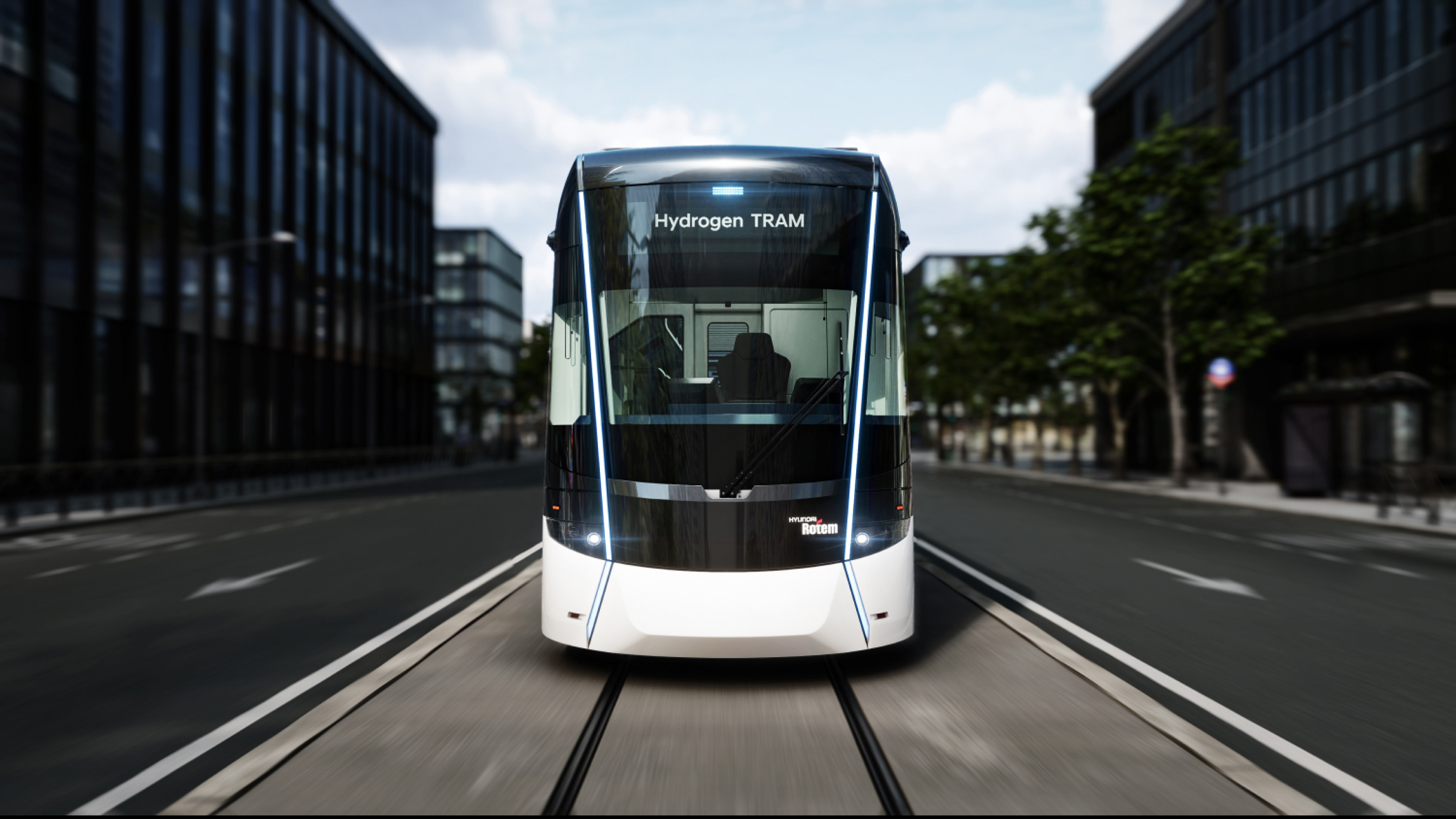
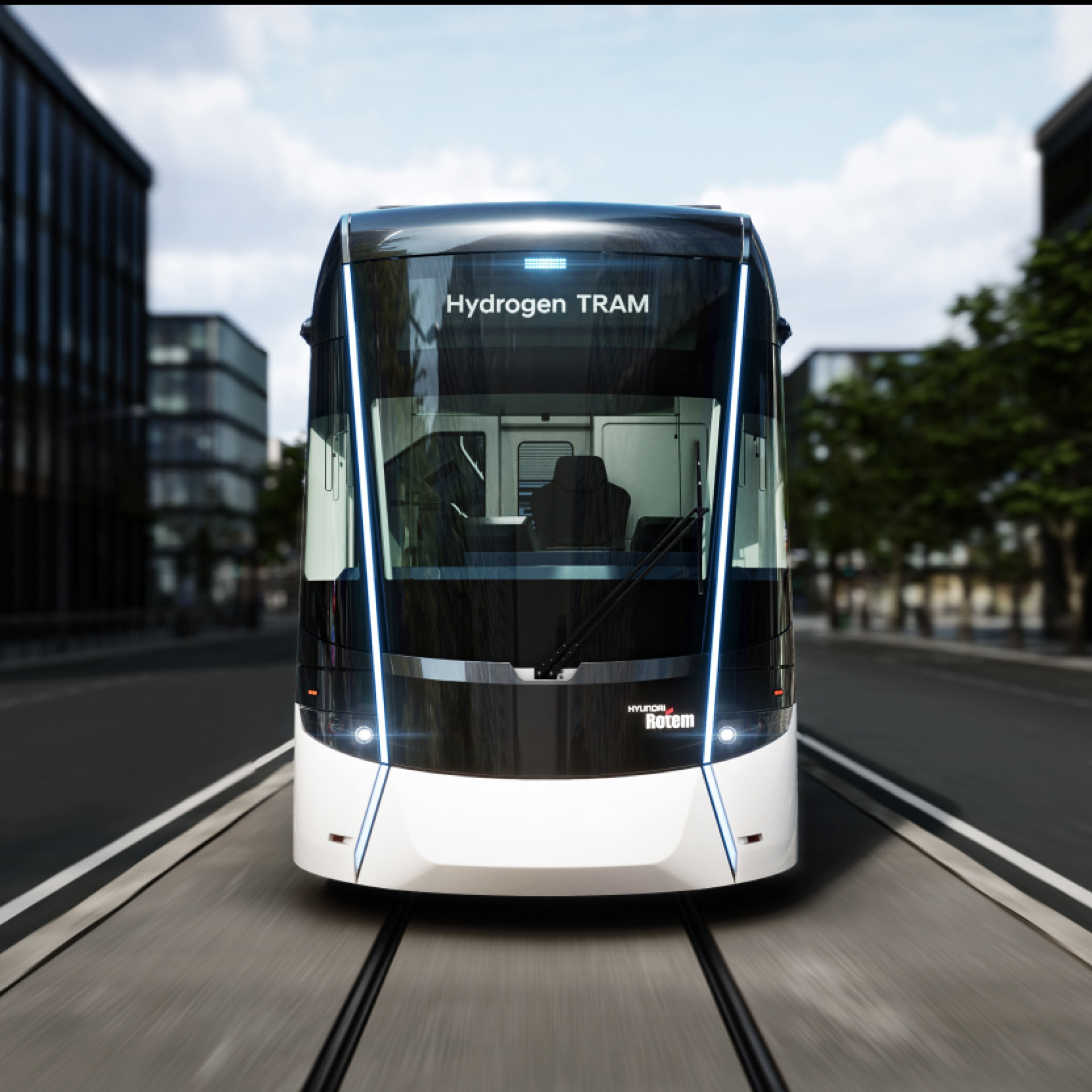


2025.02.27 Hyundai Rotem
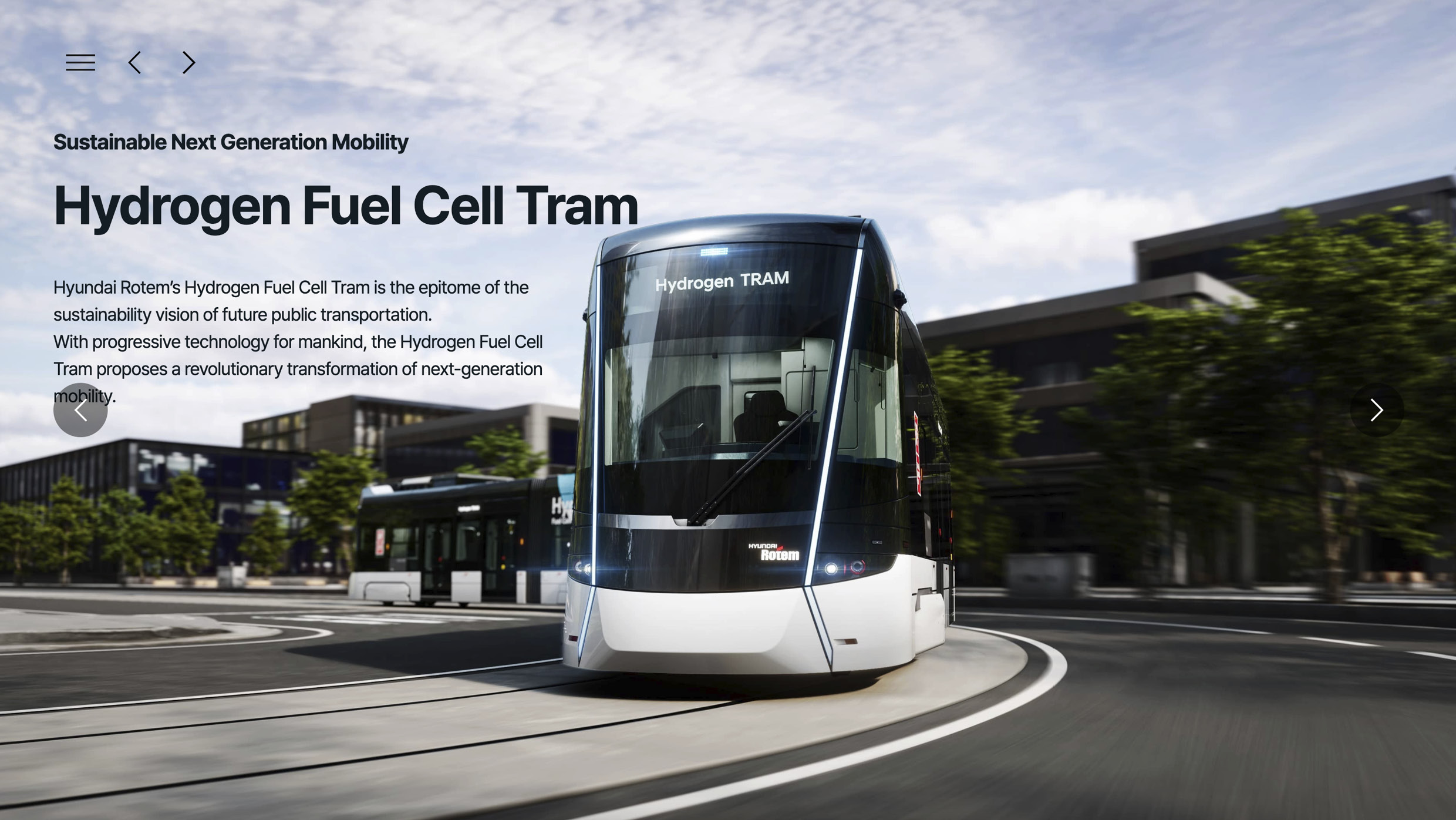
Hyundai Rotem has unveiled a website dedicated to its next-generation hydrogen mobility innovation, the Hydrogen Fuel Cell Tram. Although trams are uncommon in Korea, the vision of hydrogen-powered trams operating domestically by 2028 is steadily becoming a reality. In July, Hyundai Rotem signed a contract with Daejeon Metropolitan City to undertake the comprehensive design, production, and installation of the vehicle operation system for Daejeon Metro Line 2. Scheduled to launch in the latter half of 2028, the 38.8-kilometer circular line will become the world's longest *catenary-free route, linking key landmarks such as Seodaejeon Station, Daejeon Station, the Government Complex, and the Korea Advanced Institute of Science and Technology (KAIST). For this pioneering project, Hyundai Rotem will deliver the Hydrogen Fuel Cell Tram, signaling technology, and all supporting operational systems.
*Catenary-free: A system where no overhead power lines are installed above the tram.
Why is the Hydrogen Fuel Cell Tram so significant to us, and how will it shape our future? For those curious about this groundbreaking mode of transportation, Hyundai Rotem's dedicated website is an excellent resource. It brings together key details, including the tram's development history, design, technology, and major features, providing a well-rounded understanding of the Hydrogen Fuel Cell Tram.
The cinematic preview video on Hyundai Rotem's Hydrogen Fuel Cell Tram website amplifies anticipation for the future. It highlights the tram seamlessly integrating into modern urban landscapes, gliding effortlessly between high-rises and over elevated bridges. Showcasing detailed views of both its interior and exterior design, the video ignites curiosity about this next-generation hydrogen-powered mobility solution.
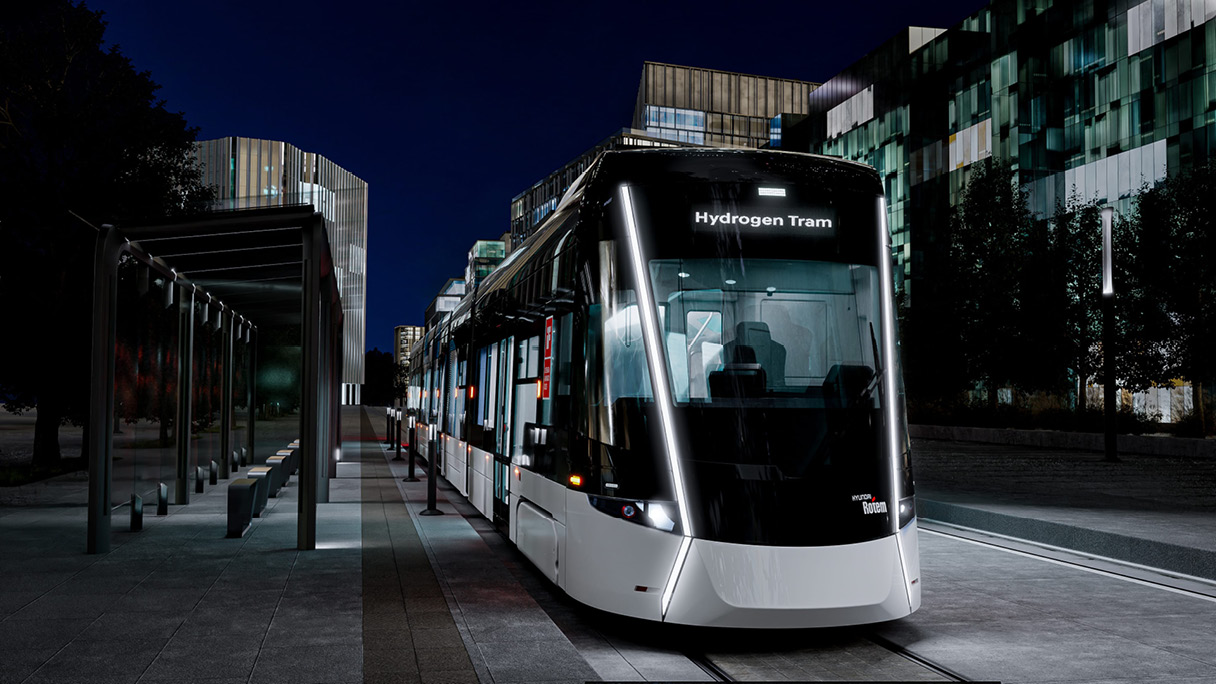
The shifting ambiance in the preview video is particularly striking. During the day, the tram's reflective surface mirrors its surroundings, creating a crisp, clean image. At night, its white signature light illuminates, crafting a futuristic and visionary atmosphere. This transformation over time underscores the tram's multifaceted appeal, solidifying its potential as an iconic urban landmark.
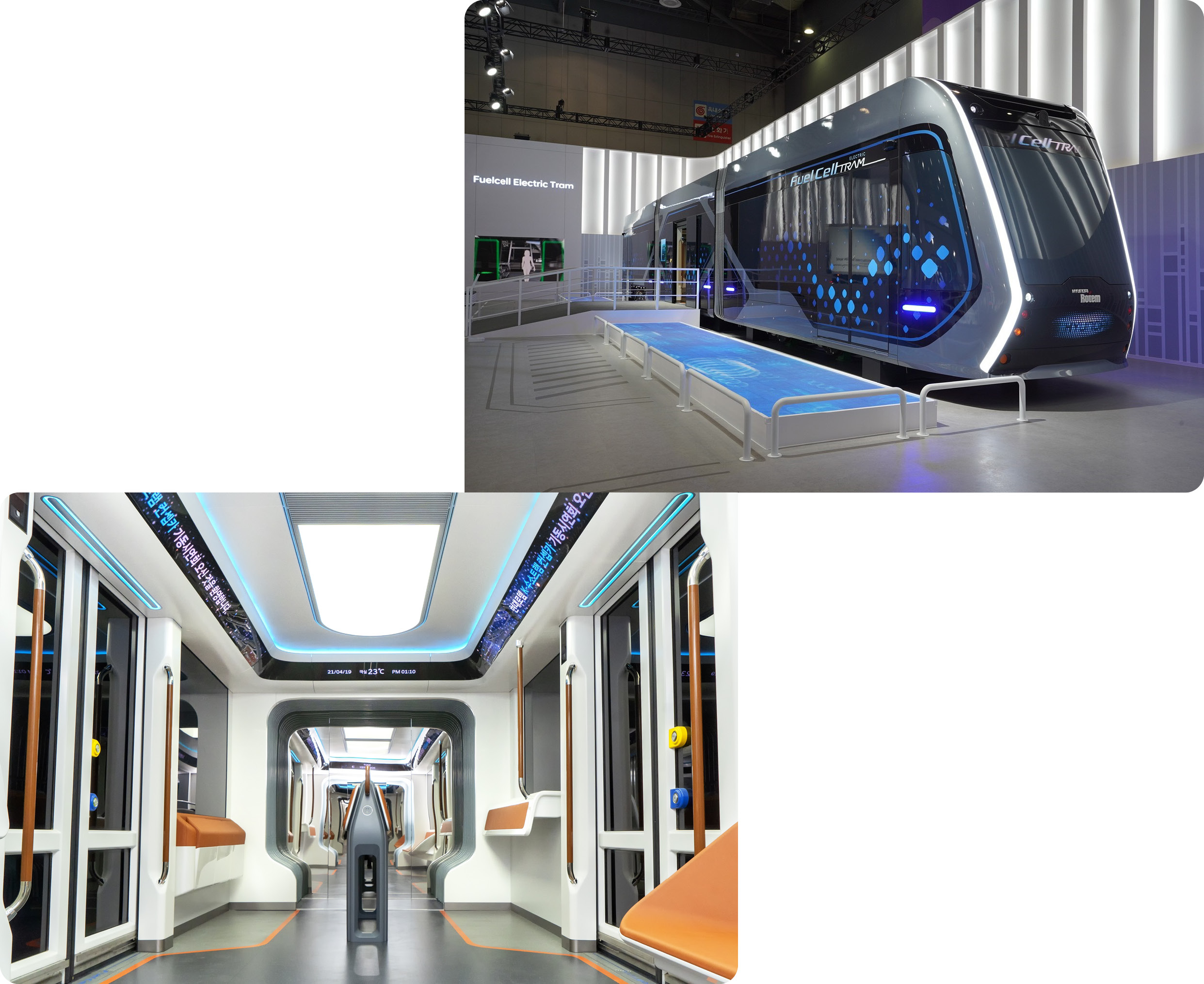
The Heritage section of the website chronicles the successful development of the Hydrogen Fuel Cell Tram. Hyundai Rotem began its research and development in 2009, with the goal of creating a tram that could seamlessly coexist with both people and urban environments. The company rapidly earned recognition for its world-class technology and made significant strides in the global market.
A special documentary video, lasting approximately four and a half minutes, is also captivating viewers. Featuring Hyundai Rotem representatives and experts, the video introduces the development process and key features of the Hydrogen Fuel Cell Tram while emphasizing the concept of "Sustainable Innovation for All." It also includes the impressions of citizens who participated in test rides, offering valuable insights into how the tram will integrate into their daily lives as the next-generation public transportation solution.
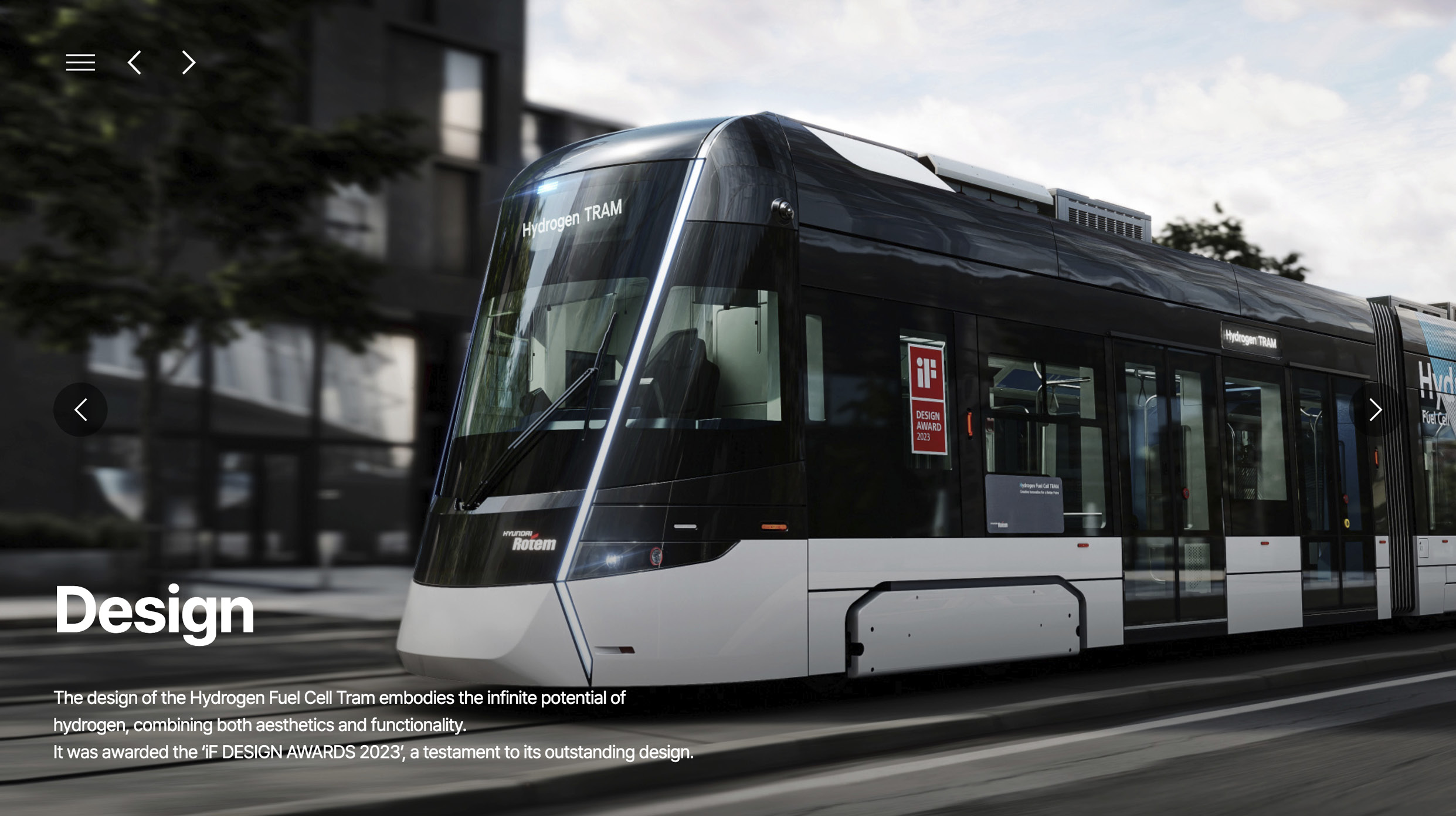
The design section allows you to indirectly experience the interior and exterior of the Hydrogen Fuel Cell Tram while exploring various design details. Every design choice serves a specific purpose, and by carefully examining these reasons, you can fully appreciate the tram's aesthetic value. Hyundai Rotem's Hydrogen Fuel Cell Tram has demonstrated its exceptional design quality by winning the Product Award at the 2023 iF Design Awards, one of the world’s top three design accolades, marking a milestone in Korea's rail industry.

The exterior design of the tram prioritizes purpose, functionality, and safety. For instance, the front cover is crafted to minimize physical injury in the event of a pedestrian collision, while the signature light—symbolizing the sustainable future potential of hydrogen—combines advanced technology with dynamism, creating a striking visual.
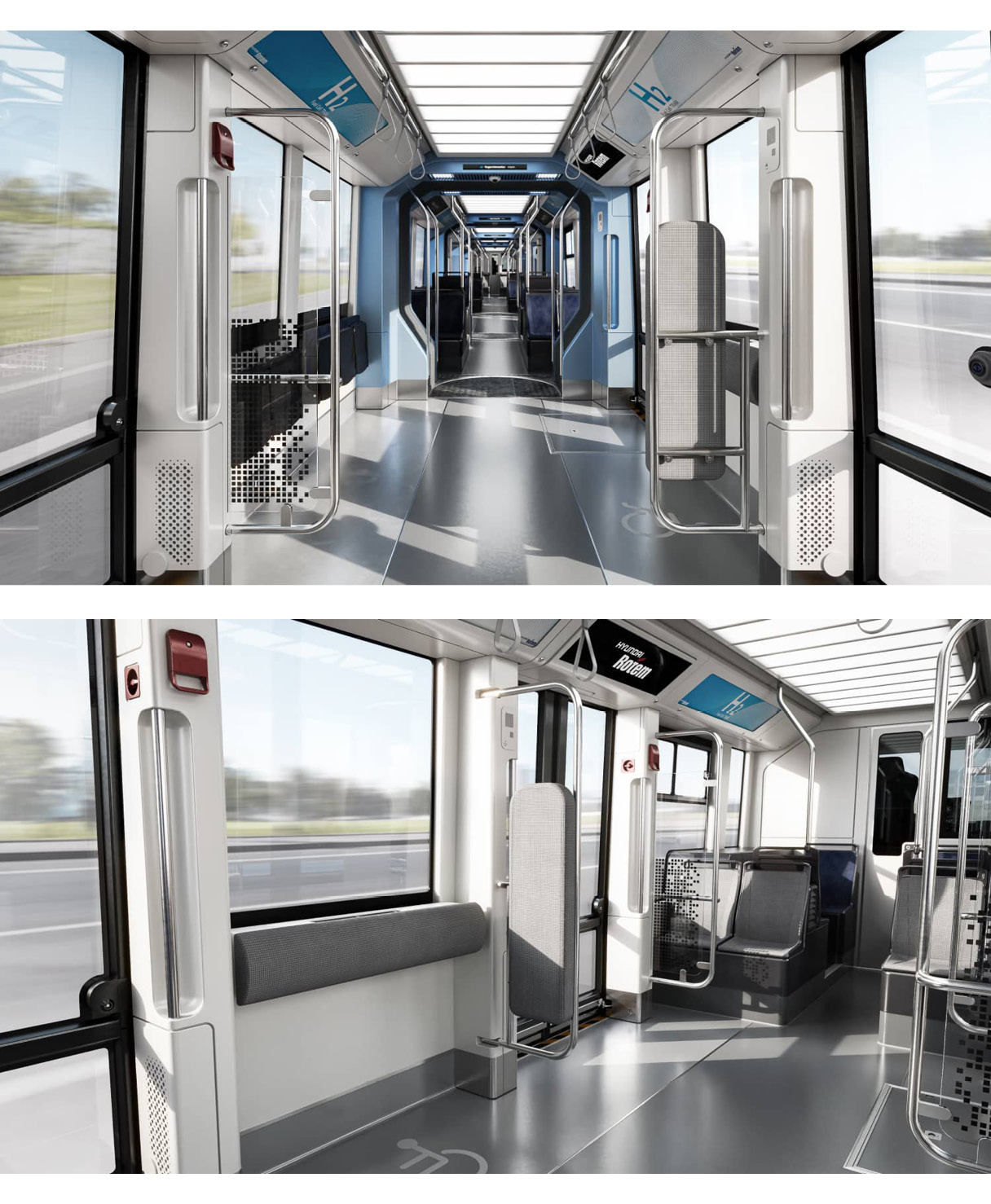
The interior design focuses on the comfort and safety of both passengers and operators. The cabin layout is optimized for ease of boarding, disembarking, and movement, ensuring maximum convenience. To enhance passenger safety, all corners of the cabin’s facilities are rounded. The ceiling lighting creates a bright, welcoming atmosphere, and a versatile space has been incorporated to improve accessibility for passengers with mobility challenges. Additionally, the design has been tailored for easy cleaning and maintenance, ensuring greater operational efficiency.
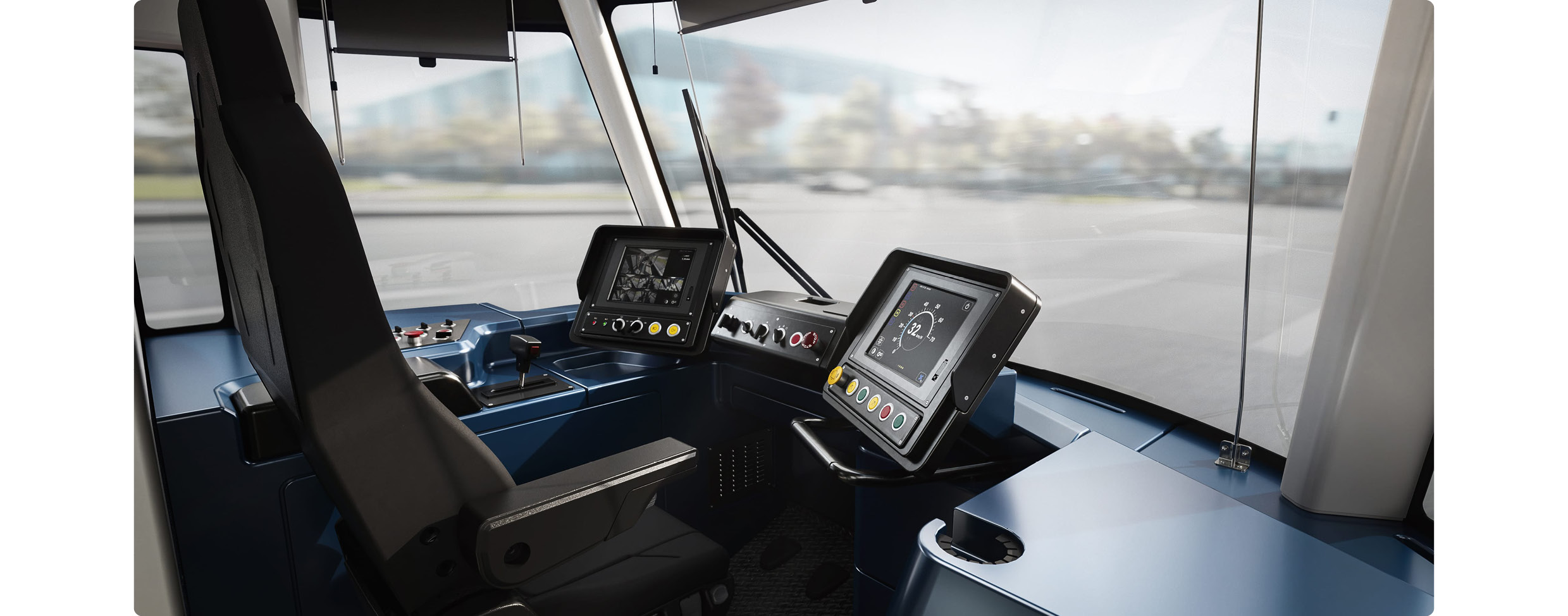
The driver’s seat is similarly designed with a focus on both functionality and comfort. By minimizing the size of the monitor and control switch module, the driver’s field of view is optimized. The layout complies with the International Union of Railways' standard for train cabins (UIC 651), while positioning frequently used buttons, such as the emergency switch, as physical buttons to enhance operational efficiency. Additionally, the cabin features thoughtfully designed storage solutions that prioritize driver convenience.
Hyundai Rotem’s Hydrogen Fuel Cell Tram website provides insights into the design intentions and details, enhancing your understanding of the tram. Additionally, you can explore the tram's exterior from multiple angles through a 360° view and examine VR images of the cabin and driver’s seat for a comprehensive view of its overall design.
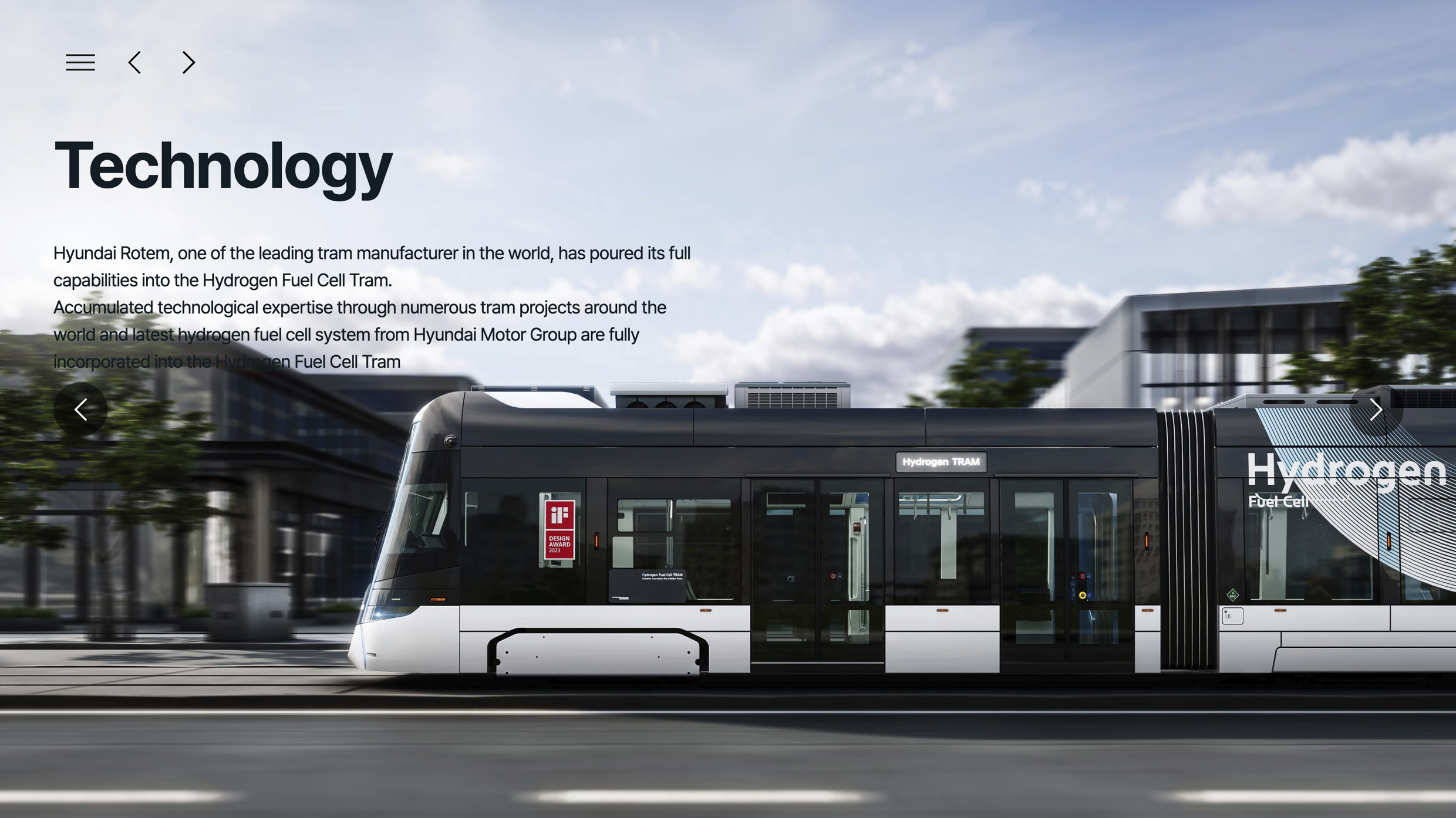
The Technology section highlights Hyundai Rotem’s expertise as a global leader in tram design and manufacturing. It provides detailed information on key technologies, such as the hydrogen fuel cell system, along with animated explanations of the operational principles, vehicle specifications, and the tram’s exceptional efficiency. The content is thorough enough to serve as a valuable educational resource.
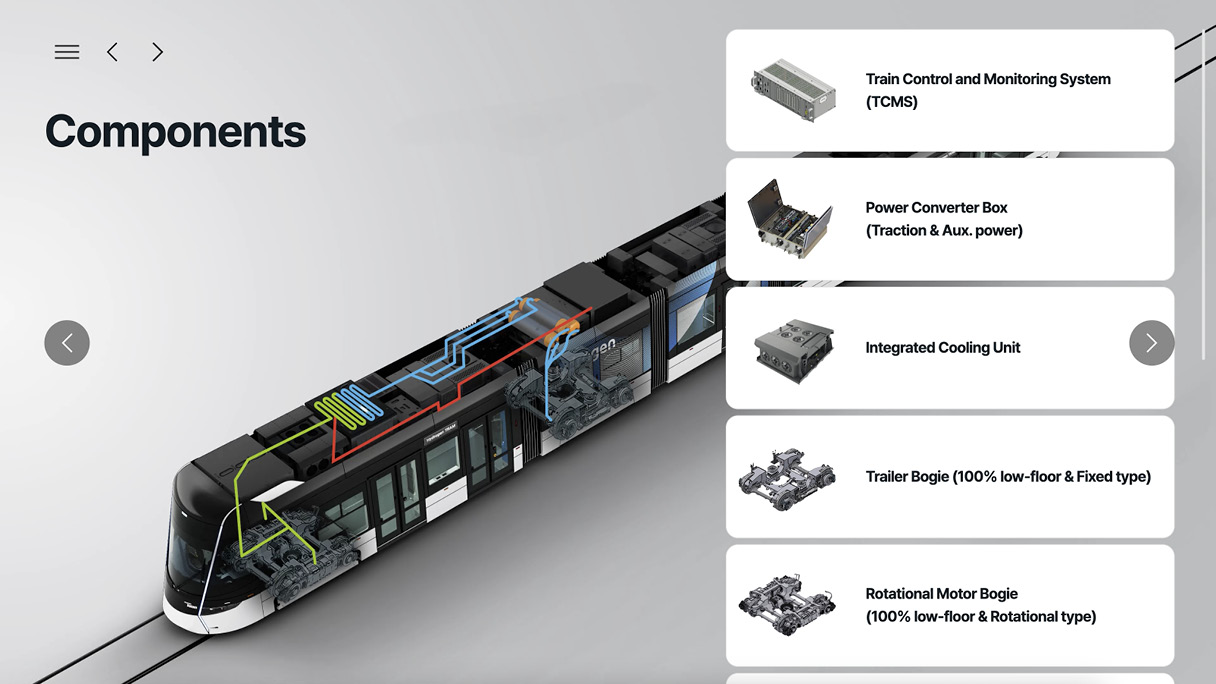
For instance, the isometric view provided in this section offers a detailed look at the placement of key components, including Train Control and Monitoring System (TCMS), power converter box (traction and auxiliary power), Integrated cooling system, fixed *trailing bogie, and rotational motor bogie. Additionally, the hydrogen fuel cell system's operation is demonstrated, highlighting its ability to filter fine dust during operation.
* Trailing bogie: A vehicle without its own power source
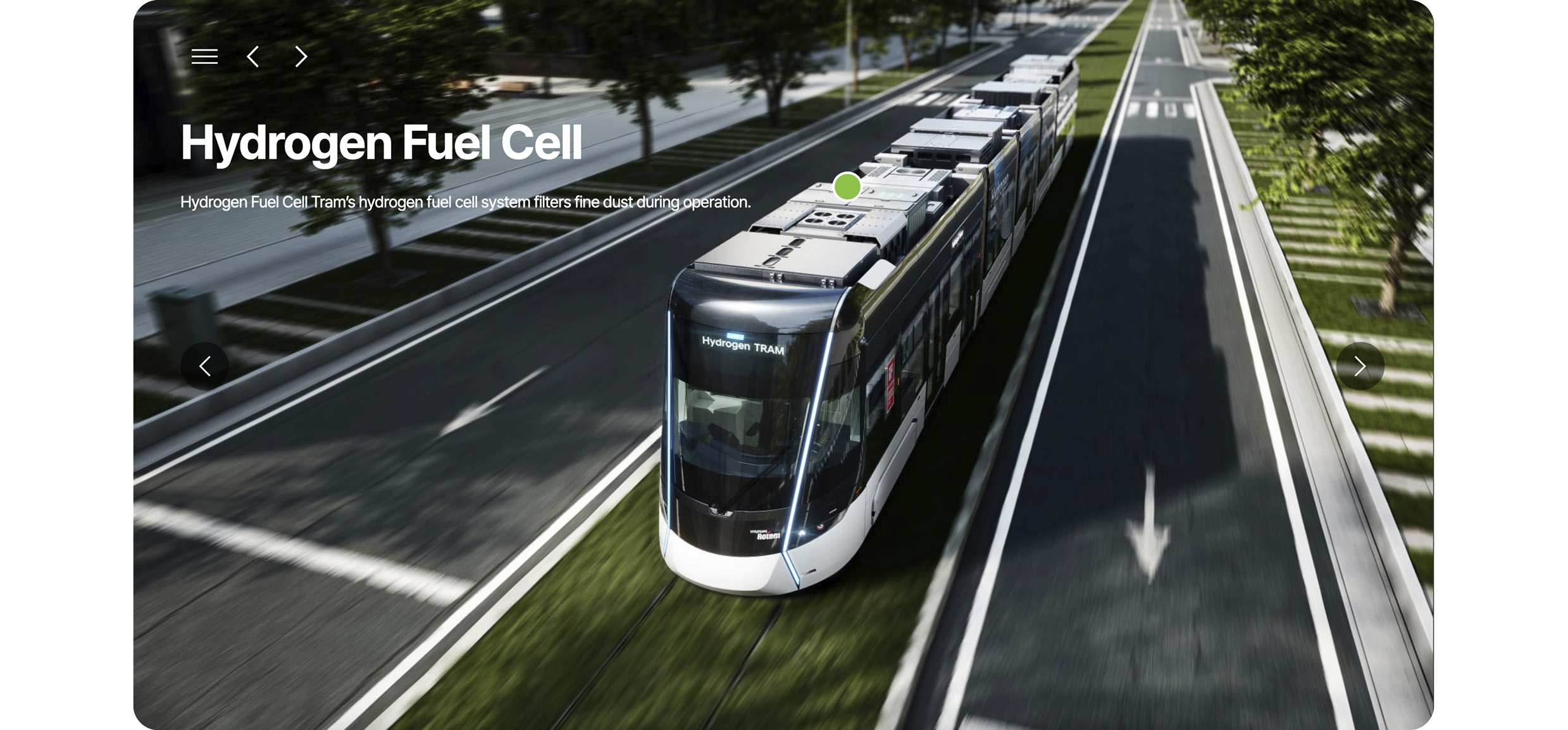
The Hydrogen Fuel Cell Tram draws in air to produce energy through the chemical reaction between hydrogen and oxygen. The incoming air passes through components such as the air filter, membrane humidifier, and gas diffusion layer within the hydrogen fuel cell, effectively filtering out fine dust and other impurities. The water produced by the chemical reaction is then expelled from the vehicle.
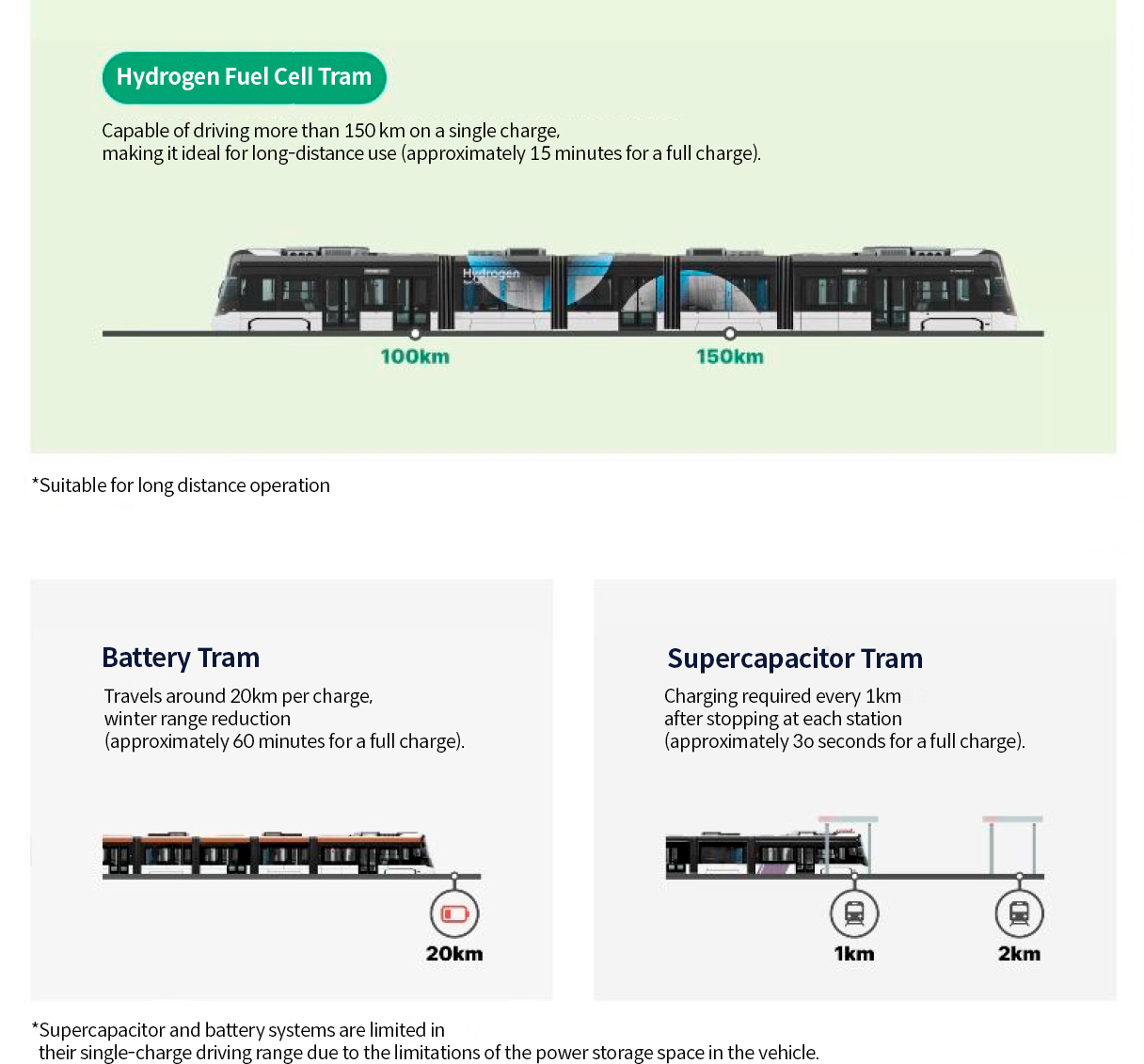
This section also highlights the pros and cons of various electrified tram technologies, including hydrogen fuel cells, batteries, and supercapacitors. Hydrogen fuel cells, in particular, allow for long-distance operation on a single charge, demonstrating the highest efficiency in any urban environment. Furthermore, because hydrogen fuel cells generate the power required for operation directly, there is no need for additional overhead power lines.
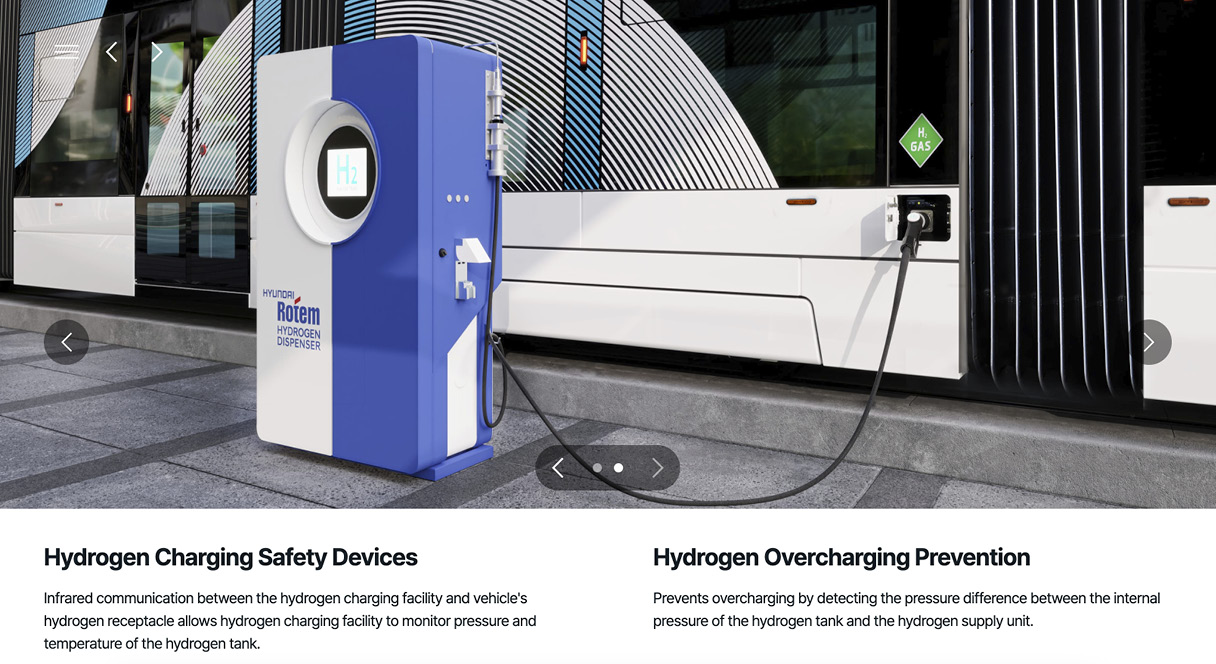
You can also explore safety technologies related to hydrogen refueling, designed to ensure the protection of all. The hydrogen refueling safety system utilizes infrared communication between the refueling station and the vehicle’s *Hydrogen Receptacle, enabling real-time monitoring of the hydrogen tank's pressure and temperature. Additionally, it prevents overcharging by detecting pressure differences between the internal pressure of the hydrogen tank and the hydrogen supply unit.
*Hydrogen Receptacle: The component where the nozzle of the hydrogen refueling station is connected. It serves as the connector between the hydrogen vehicle and the refueling station.
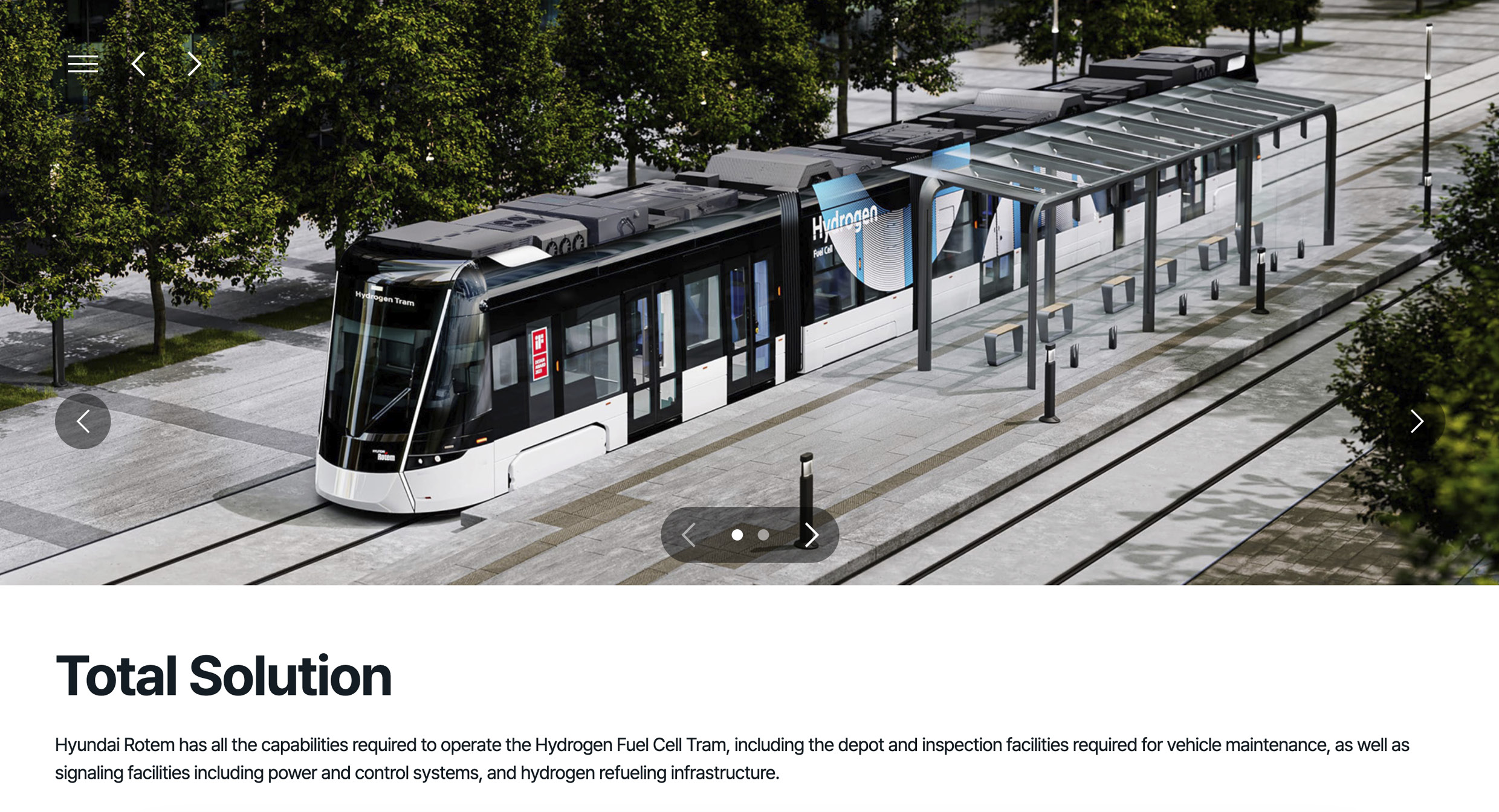
Hyundai Rotem’s Hydrogen Fuel Cell Tram is considered one of the key projects driving the transition to a hydrogen society. Hyundai Rotem possesses all the necessary capabilities for the successful implementation of the Hydrogen Fuel Cell Tram, including the required depot and inspection facilities, signaling systems with power and control, and hydrogen refueling infrastructure. Furthermore, Hyundai Motor Group is leading the global energy transition with its comprehensive hydrogen solution, 'HTWO Grid,' which offers tailored packages optimized for each customer’s environmental needs at every stage of hydrogen production, storage, transportation, and utilization.
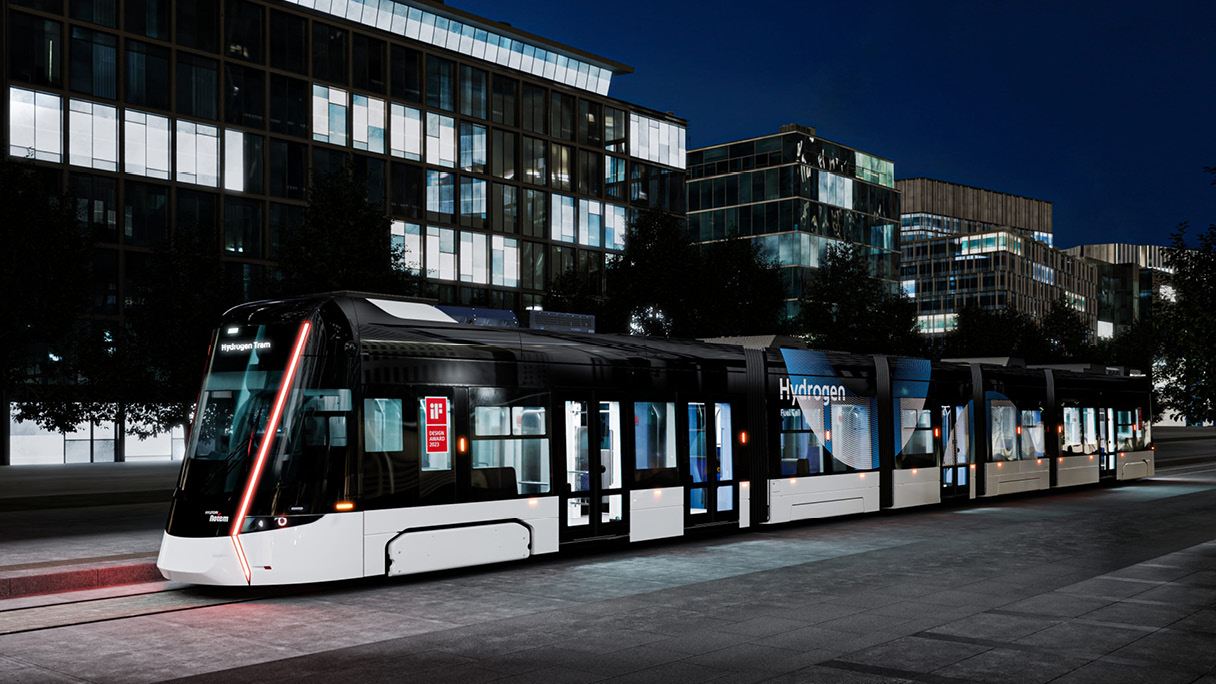
Hyundai Rotem plans to build a comprehensive lineup of hydrogen-powered railway vehicles, including hydrogen fuel cell trams, railcars, locomotives, and high-speed trains, in collaboration with Hyundai Motor Company, which has been at the forefront of hydrogen energy research and development for over 30 years. This partnership will further strengthen Hyundai Motor Group’s hydrogen mobility lineup, which already spans passenger cars, trucks, and buses. The future holds the exciting prospect of Hyundai Rotem’s Hydrogen Fuel Cell Tram smoothly navigating through our cities.
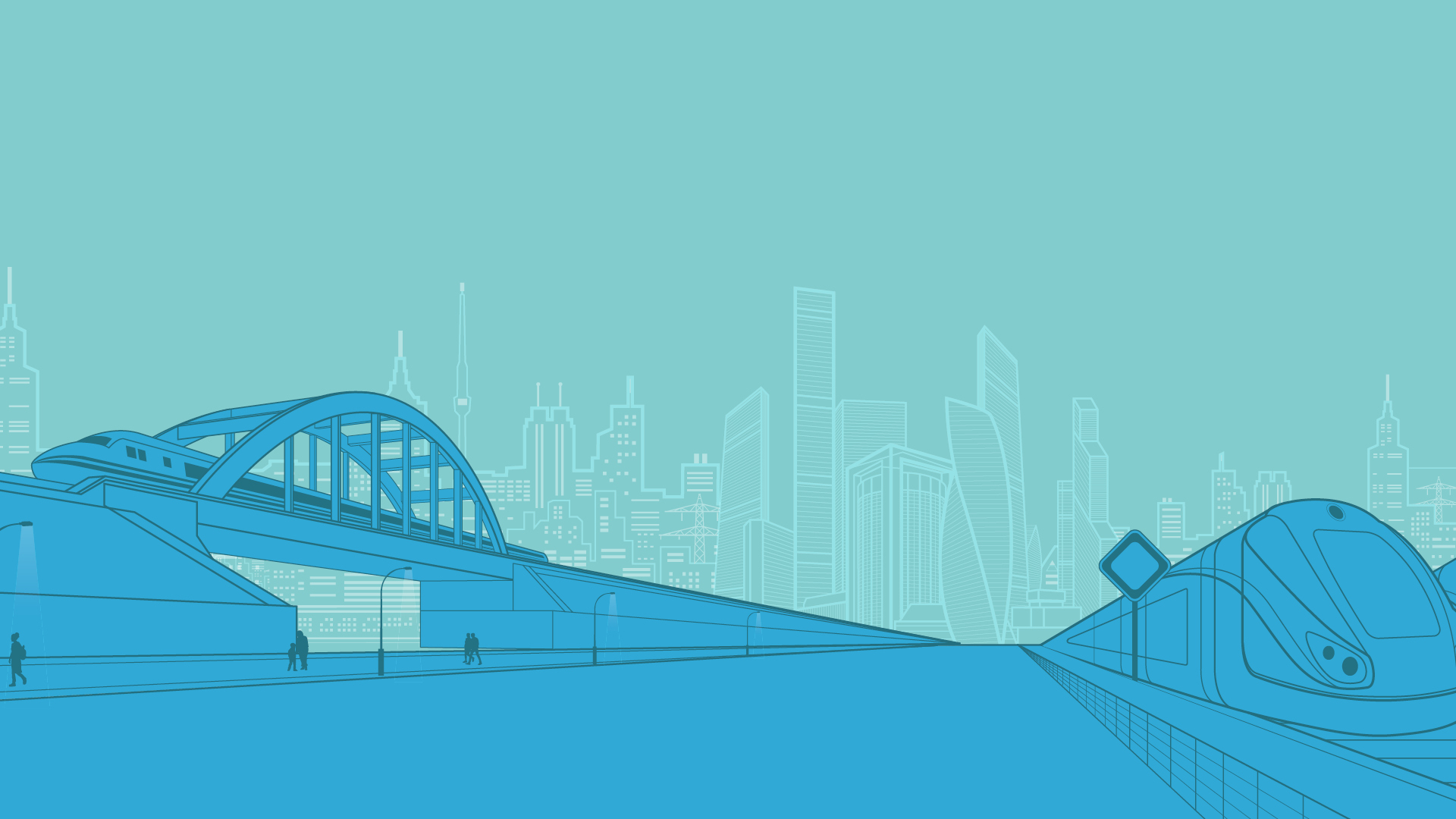
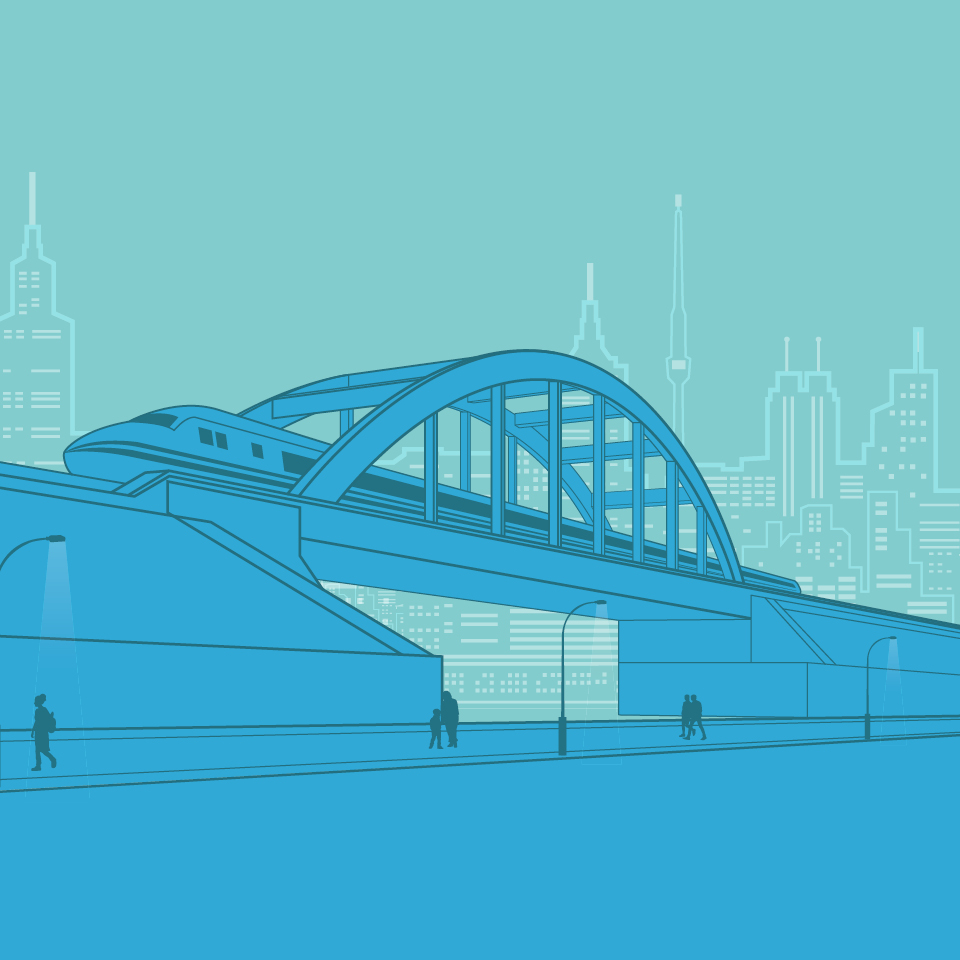
To A Bigger World: Hyundai Rotem Rail Solution
2023.07.14 7min read